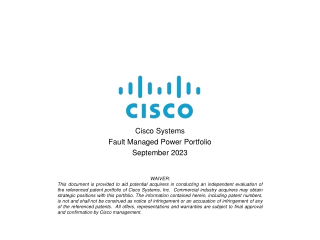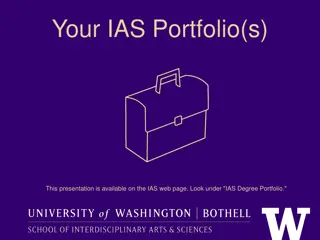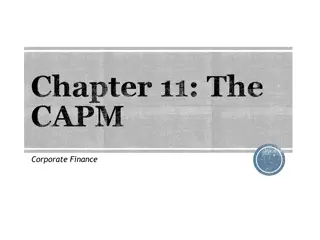
Understanding Facial Recognition Technology and Its Ethical Implications
Explore the workings of facial recognition technology, its impact on citizen privacy, and the ethical concerns surrounding unauthorized use by government departments. Discover the reliability issues and security implications associated with facial recognition systems.
Download Presentation

Please find below an Image/Link to download the presentation.
The content on the website is provided AS IS for your information and personal use only. It may not be sold, licensed, or shared on other websites without obtaining consent from the author. If you encounter any issues during the download, it is possible that the publisher has removed the file from their server.
You are allowed to download the files provided on this website for personal or commercial use, subject to the condition that they are used lawfully. All files are the property of their respective owners.
The content on the website is provided AS IS for your information and personal use only. It may not be sold, licensed, or shared on other websites without obtaining consent from the author.
E N D
Presentation Transcript
ITGS PORTFOLIO https://www.wired.com/story/facial-recognition-tech-creepy-works-or-not/
Criterion A i) The primary stakeholder in the article is the citizens that are being watched by surveillance camera in public areas. Ii) the main social/ethical concern the issue is the policies of which Government Department are not given the authorities to do facial recognition on citizens , but they do it anyway.
Criterion B Step by step on how IT system works (facial recognition) : Step 1. A picture of your face is captured from a photo or video. Your face might appear alone or in a crowd. Your image may show you looking straight ahead or nearly in profile. Step 2. Facial recognition software reads the geometry of your face. The main area includes the distance between eyes and forehead to chin. There are software that identifies facial landmarks in which one system may identify 68 of it.These are key in diffrentiating peoples face which results your own facial signature. Step 3. Your facial signature a mathematical formula is compared to a database of known faces. Step 4. A determination is made. Your faceprint may match that of an image in a facial recognition system database.
Issues caused Authorised access to database containing datas for facial signatures of citizens are not given to government department who uses them , this causes citizens to be not satisfied with the amount of anonymity or privacy that they would have.
Criterion C Reliability (advantage & disadvantage) How reliable is the system ? Facial recognition enables government to detect a criminal through a recorded tape or surveillance system , however there are some flaws in which the results are false-positive which causes unwanted citizens to be captured or reprimanded due to fault in the IT system.
Policies Most of the times , the parties who uses facial recognition to determines ones identity are not given the authorities to even access the database for facial recognition . This if known, would cause citizens to sew the parties who uses the It system itself. Parties such as the Police Department actually has no authorities to do facial recognition to citizens based on the article.
Security (advantage & disadvantage) Facial recognition enables authorities like airport administrator hackers, hit man to keep track of citizens behaviour for multiple purposes like security. For example , identifying a terrorist in the airport. This can prevent a terrorist attack .However it may cause trouble to citizens if the information about a certain individual is exposed or hacked by unauthorised party , it may expose danger to the citizen
Privacy Facial recognition causes citizens identity to be known to determine what they are doing at a particular moment of time , however problem arises whereby facial recognition is used by governments in inappropriate places without citizens knowing. For example , a camera might be placed inside a toilet booth where citizens using the toilet can be identified illegally.
Authenticity although facial recognition enables us to access to our devices easily , however if the system has some what malfunction , or the condition of the users face itself has somehow altered the his supposed facial print which differentiate his or her face from others and may cause identity swap, the user might experience trouble when accessing a certain apps especially when users cant access the apps through normal authentication. For example , In the Police Department , sometimes facial recognition fails to retrieve the information of a certain individual causing information of others which has the similar face to be retrieved from the database.
Digital citizenship Causes citizens to be more cautious of what they are doing in public because they are aware of information that they might be giving out
Conclusion Facial recognition plays a significant role in the human society nowadays . Completely removing facial recognition would put a toll on what has been implemented to the society. We as a user has to face the fact that nothing is perfect and that the flaws of the IT system should be thoroughly researched so that faults in the system would not easily occur.
Criterion D 1.A) The problem stated in criterion C is regarding the policies in which government are not given authorised access to certain data but they use it for facial recognition. B)The solution that can be done to ensure is that the government should regulate the use of facial recognition whereby government must restrict themselves from breaching certain perimeters which is setted up by the agreement of both parties in which this case is the citizens and the government itself. For example , government are not allowed to sell citizens information or let others unauthorised parties to access their database freely and citizens can choose what data they would allow government to use for certain purposes .In which this can solve the problem of policies in which citizens would be satisfied because the information that the government has is only based on what the citizens has allowed the government to have.
2. A)When government regulates or restrict their access to databases for facial recognition purposes , and apply laws or policies that protects the privacy , anonymity of citizens .For example , only allowing certain information into their databases that can be accessed from the agreement of the citizens and also that they would state that they would ensure that the database or information that is given is used for good purposes only. B)citizens would not feel like their privacy are being invaded , they would feel safe knowing that the things that they are doing are not known by others especially governments.
3) evaluation (+ve) The privacy and anonymity of user is secured , this causes citizens to cooperate with the government sector more better because of the trust and safeness that is provided by the government through policies or laws that is implied to their system.The problem of citizens being afraid of the government knowing that government knows everything about them would not happen.Citizens would not be blindly arrested because government or polices would need to interogate citizens face to face to ensure that they are guilty through approach and not by the facial recognition alone. (-ve) Criminals or bad guys may get away with their bad doing because facial recognition could not be used freely by the government department such as police department. Evidence for a certain criminal cases might be hard to obtain because of individuals that does not allow access to certain information that can be accessed through recordings.
Future development With certain policies being applied , the future of facial recognition may be accepted wholly by others especially people who distrust the government due to information that the government may obtain from them and use them for unintended purposes.This is because with policies that protects the citizens rights such as privacy , citizens would be able to run their lives normally without having the thought of them being surveilled by governments or government taking their information without their permission.
Conclusion As a conclusion , they are tons of features that facial recognition may produce . However , without proper approach to the IT system , it would not be able to be implemented to countries or be used for the people because of its nature of identifiying someone in certain time or place. Information like these can be dangerous if people like hackers access them as it may danger citizens . With policies being implemented , there would be no problem to use facial recognition in the long run.






















